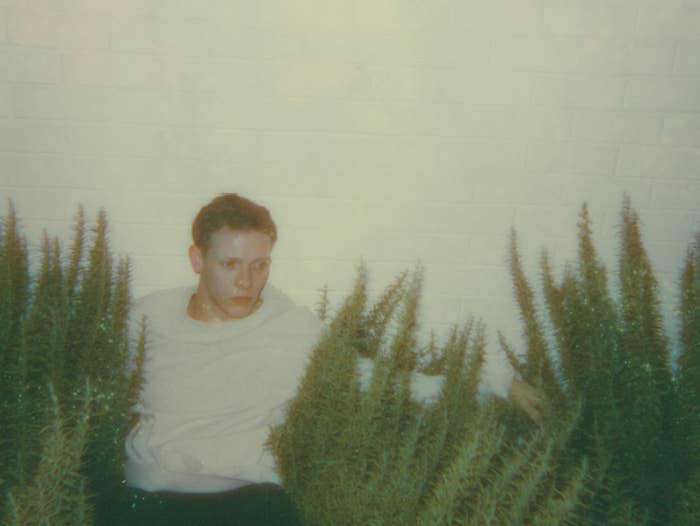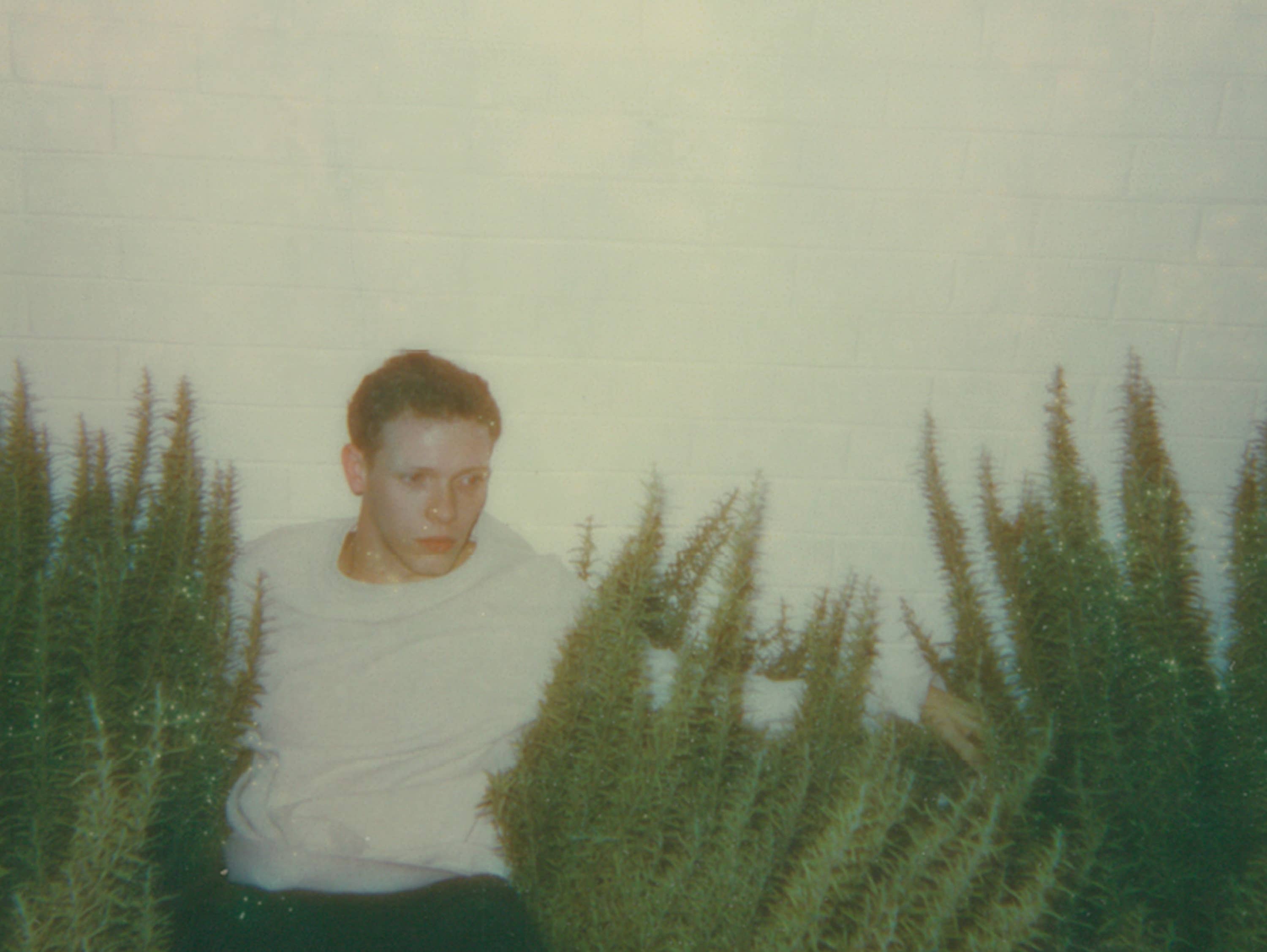
For some popular artists, years of hard work culminates in a dam-breaking moment where their ascent happens all at once. Others can tell you every about every bit of incremental progress on the uphill climb to success. Virginia-born, Austin-based singer-songwriter Matt Maeson belongs in the latter category.
For the time being, Maeson is best known for his song “Cringe,” which reached No. 1 on Billboard’s Alternative Songs airplay chart on August 24, despite having been released in November 2016. Drawing on his hard-living days, “Cringe” is about feeling judged and ostracized by the people closest to you. The singer began pushing the record in early 2017, embarking on a lengthy cross-country radio station tour while also performing regular shows and striking a chord with receptive fans who saw themselves in the song. Having spent much of his early musical career performing in prisons with his family’s ministry, Maeson says he’s long had a deep reverence for the uplifting power of songs.
“Right now, in a lot of music there’s a big lack of sincerity and being honest and real. I figured that the reason I am where I’m at is because the artists I listened to helped me get through really hard times,” he says. “It shifted my thinking about things, because music is this incredibly influential thing.”
Written around the same time as “Cringe,” his latest single is “Go Easy,” another powerhouse track that grapples with how people treat you when you’re at your lowest. The songs appear together on Maeson’s debut album, Bank on the Funeral, which features tracks from the last three years. The project serves as an intimate and unvarnished portrait of the artist overcoming drug and legal issues to build a new, stable life.
“Go Easy” features one of Maeson’s most commanding vocal turns, a quality he highlights during a November show in Brooklyn where he makes it the sole song in his set he sings without his guitar. There’s a sermonic quality to the way he calmly paces around the stage, backed by enveloping organ tones.
We sat down with Maeson in Manhattan to talk about his unorthodox musical background, his new video for “Go Easy”—premiering here on P&P—and the challenges that come with changing your life for the better.
You got your start performing music in prisons with your family. How did that happen?
My parents were musicians when I was a kid—they were in some Christian heavy metal bands. I moved out of my parents’ house the day I turned 18, got in a whole bunch of trouble, got arrested, and I was like, I’ve got to change shit up. At that point, my parents had just started their prison ministry so I was like, maybe I should just go on the road with them for a while and get my head straight. That’s what I did. I played a couple hundred prison gigs, and they’re like the best shows I’ve ever played. It’s where I really cut my teeth.
I moved out of my parents’ house the day I turned 18, got in a whole bunch of trouble, got arrested, and I was like, I’ve got to change sh*t up.
Did that inspire the video for “Go Easy” since some of it takes place in a penitentiary?
Yeah, it also had a lot to do with the way I write and what I write about. You learn a really big sense of compassion when you’re shaking hands with dudes and you don’t know if this guy killed three people or he just got busted with two ounces of weed. Being able to separate that from how you’re interacting with the person, that has to do with what I wrote “Go Easy” about.
You sat on “Go Easy” for almost three years after writing it. How did the song come about originally?
I wrote it around the same time as “Cringe,” which is kind of about the same subject of trying and wanting to get better, but having people push you away rather than pull you in to help. Inevitably, that just makes you worse off. I wrote [“Go Easy”] with the guys from the group Captain Cuts. We wrote it in Nicaragua in the middle of the jungle at a writing camp.
You were sorting out a lot of personal issues at the time you wrote “Go Easy” and “Cringe.” Was making those songs a catalyst for you making necessary changes to your lifestyle, or were you already making progress?
It was kind of a mixture of both. It was already happening, but at the same time, it hadn’t already happened. Writing those songs helped me realize, These people that are treating me this way are probably never going to change, so I’m not necessarily going to change myself for them, but I’m going to understand where they’re coming from. Writing those songs made me realize I should just be the bigger man and say, “I am going to get my life together, whether you help me or not, but I’m not going to treat you any differently because you weren’t there.”
You pushed hard for “Cringe,” which obviously went on to be a huge hit. What made you feel like “Go Easy” would be a good single?
It’s always a team effort. I listen to what the label has to say about it. If I feel so strongly, I’ll be like, “No, dude. We should do this,” but this was kind of a no-brainer. It’s the most universal-sounding song on the record. Anyone can get into it.
People can listen to a song like “Go Easy” that’s about this specific thing to me, and then they can relate it to whatever they’re going through. I’ll play a live show and see the way people are singing the lyrics and think, damn, this really means something to them. That’s why I do it. That’s what’s magical about making music and playing it live, is seeing it affect people like that.
One of the most powerful lines in the song is “I can’t keep living for the damage.” Could you explain the meaning of that phrase?
It’s kind of a reversible thing. I can’t keep living and going this way, the wrong way, doing all the drugs, doing whatever else. I’m destroying myself. That’s damage. But, I also can’t go the right way, because you’re not letting me and you’re pushing me away instead of pulling me back in and trying to help me out. That’s also damage.
You’ve put more emphasis on your videos than many new artists do typically. Do you think there’s something inherently visual about your music?
Definitely. I’ve always been such a film nerd. I’ve always wanted to score movies, and I always write with dynamics involved, even when I’m just on acoustic. That’s why there are so many low points and highpoints in my songs, it’s because I’m literally writing while [imagining] a full band behind me, or [visualizing] a scene happening.
I get a lot of messages from fans about what they’re going through and how the songs affect them. I can’t reply to them all, but just seeing that is so much affirmation for why I’m doing this.
Your faith is something you address in your music, but it isn’t necessarily overt. Would you describe what you make as religious?
Kind of, I do talk about it. I don’t even like the idea that there is a separation between Christian music and non-Christian music. It’s kind of weird to me to throw a label on it like that. I talk about faith a ton in my music, through the whole album. [That designation] makes it seem less approachable, like people feel they can’t listen because there is a Christian label on it. I wouldn’t label my music Christian music anyways, but it does have a lot to do with faith.
Obviously, it would be great if “Go Easy” becomes your second No. 1 Alternative song, but when you look back in a few months. how will you know it had the impact you want?
I can tell that from the shows I play and how I see people singing it. But the cool thing about music and what I write about is that I get a lot of messages from fans about what they’re going through and how the songs affect them. I can’t reply to them all, but just seeing that is so much affirmation for why I’m doing this. It’s to help someone feel understood, even if they’re going through something entirely different than I did. They’re relating it to their situation and it’s helping them—that’s a beautiful thing.
That seems like it has really been the throughline of your whole life as a musician.
That’s what music did for me for so long. Now, being able to be the person that those people were for me to others is fucking sick.

